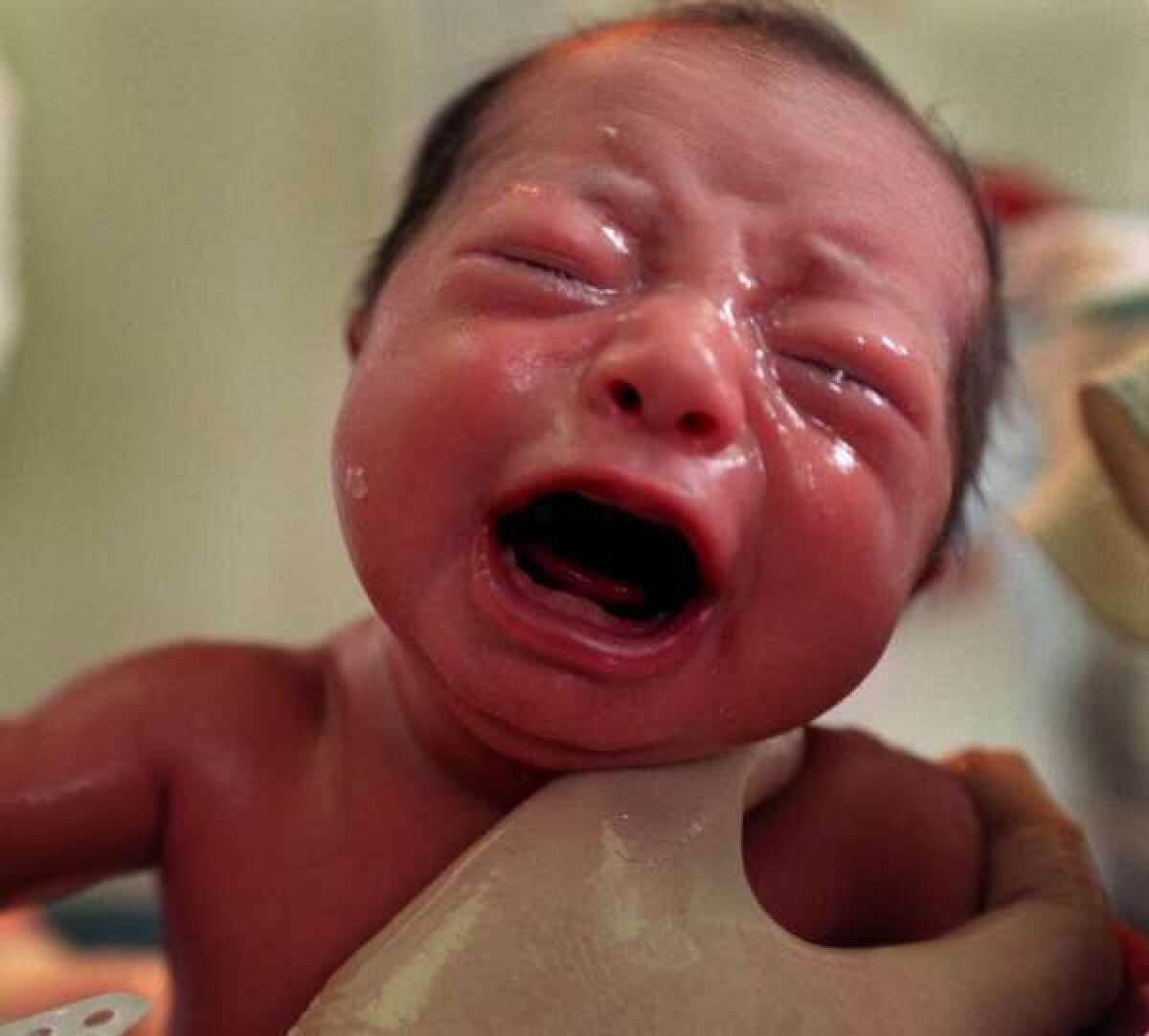Women’s brains more likely than men’s to respond to crying babies

- Share via
WASHINGTON – Why do kids grow up to cry “Mommy” more often than “Daddy”? The National Institutes of Health has an answer: The wailing of a hungry infant is less likely to bother a man than a woman.
In an experiment, 18 men and women were encouraged to let their minds wander while researchers played recordings of white noise mixed with an infant’s cries. Those cries abruptly raised attention levels for women, brain scans showed. But men’s brains remained in a resting state, according to study results published in the journal Neuroreport.
“New babies don’t come with an operating manual,” study coauthor Marc Bornstein, head of child and family research at the Eunice Kennedy Shriver National Institute of Child Health and Human Development, said in an interview Monday. Bornstein said the study is part of a series he is working on to better understand what he calls the “parenting brain.”
The study’s results could be useful for new mothers, including the 12% who experience post-partum depression, Bornstein said.
“Clinically speaking, it would not only be interesting to peer into the brains of depressed mothers to look at these kinds of responses but to alert depressed moms that they need to become more vigilant about their infants’ state,” he said.
The results could also prompt fathers to be more attentive to newborns, he added. The findings were published in February, and you can read the full study online here.
So far, Bornstein’s studies have found that being an attentive parent has its rewards.
“Increased attention of the good kind is good for both parties – parents and children,” he said. “Children come to feel valued, affirmed and approved of when their parents pay attention to them, and they benefit cognitively – for example, from parental responsiveness and teaching. Parents get rewarded from their children’s development and achievements, and by attending to them, parents get to know their children better and so become better parents – as long as the attention is of the good kind.”
Previous studies that measured adults’ emotional responses to crying infants have found that women are more likely than men to want to care for a crying infant, according to a statement from the NIH.
In another research effort, Bornstein found that infants who were later diagnosed with autism cried at a higher pitch than infants who did not have an autism spectrum disorder. Adults were more responsive to the higher-pitched cries, Bornstein found.
If you want to test yourself to see whether you can ignore the cries of a hungry baby, you can listen to the clip from the research study here.
@wesventeicher
Return to Science Now.




